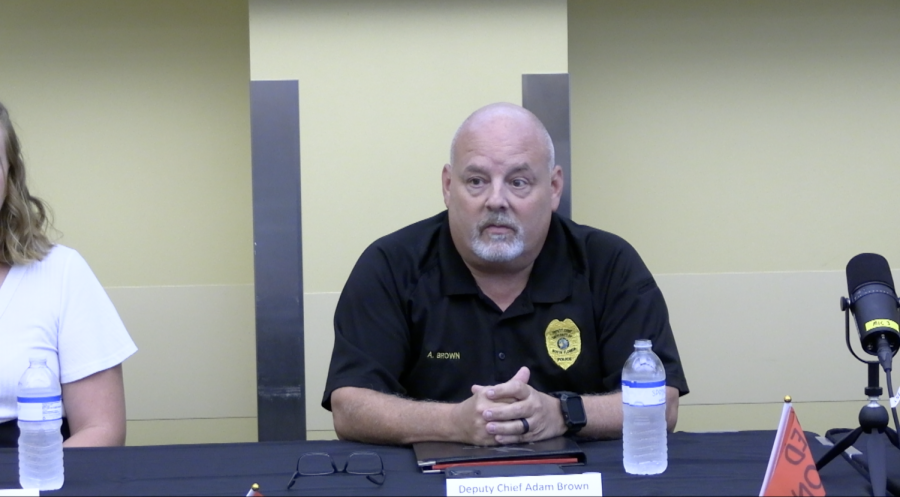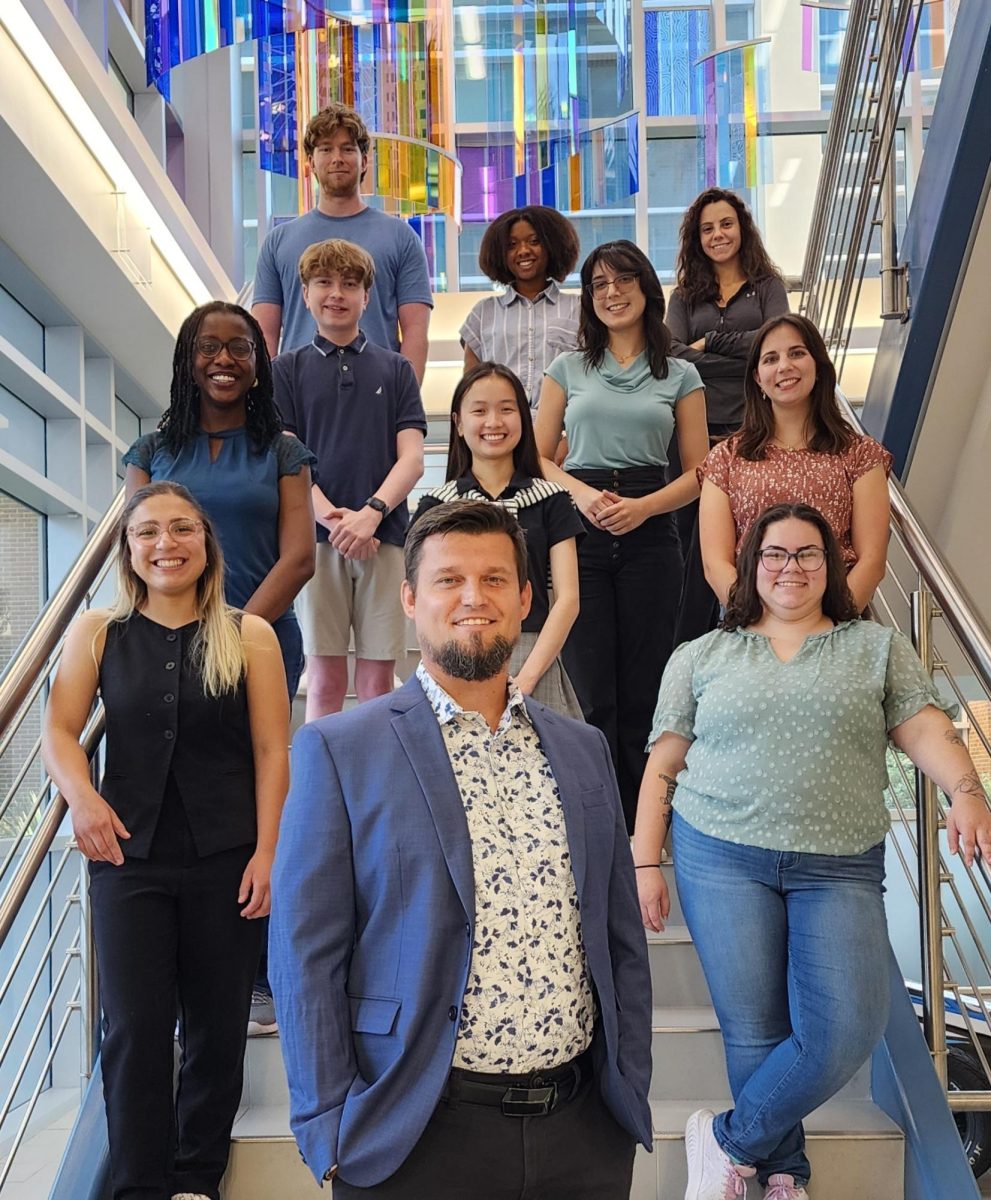For its third year, various University of North Florida faculty and staff will speak on a panel to discuss the Red Zone — the time of year that sees the most instances of sexual assault on campus — and other important information students should be aware of as they return or enter campus for the first time.
The Red Zone typically starts at the beginning of the fall semester and lasts till Thanksgiving break. But what does that really mean?
The first part of the fall semester sees statistically more instances of sexual assault for several reasons. It could be that sometimes younger students may not know what to look out for in social settings which could be signs of a bad situation. Or, inexperience with substances can lead to bad situations and students may not know how to ask for help.
Adam Brown, a deputy chief for the UNF police department, said that sometimes students get to college and are exposed to alcohol, parties and dating for the first time, so they aren’t always familiar with how to keep themselves and their friends safe.
Staying safe on and off campus
In a party setting, Brown advised that students should be very careful accepting drinks or opened cans from other people “because you just don’t know what’s in there.” He also advised students to go to parties or social gatherings in groups because there is safety in numbers.
He said if you’re walking around campus, walk in well-lit areas and utilize the Safe Ospreys app which has features like “Mobile Blue Light” and “Friend Walk” that can request immediate UPD assistance and allows a friend or parent to monitor your location as you walk.
“What I see a lot of times is the people who end up getting in trouble with this, they’re kind of isolated, they’re not traveling in friend groups,” Brown said. “They’re not sharing experiences with other people. If you feel like somebody’s pressuring you, or you’re in a bad situation, let friends know. Let anybody else know.”

Amy Howell, a UNF women’s health nurse practitioner, suggested students make a plan for the end of a night out, like figuring out rides home and deciding with friends that no one will be going home with someone they just met.
“Go out with people who care about whether or not you may get home,” said Howell.
Education and awareness
The Red Zone calls attention to incidents outside of sexual assault that students should be aware of. Inexperience and misconception going into college can sometimes lead students to not fully understand important topics, like consent and date rape drugs.
College is a big shift from high school and when it feels hard to make friends or fit in, students sometimes turn to alcohol or substances to relax enough to try and have fun. And while this is normal for many new college students, substances lower inhibitions, impulse control and makes decision making impaired, Howell said, so being aware and educated on their effects is crucial.
If you see a potentially dangerous situation where someone looks too intoxicated or if a friend is making abnormal decisions because of substance use, it’s always better to be safe than sorry. If you don’t feel comfortable intervening, tell someone around you about the situation for help.
Another topic that is seemingly obvious, yet the most overlooked, is consent. Howell explained that there are mixed interpretations and misconceptions about what consent is. It’s important to understand that consent is sober, ongoing, enthusiastic and verbal, she said.
“I think that sometimes a “perpetrator” is actually someone who is not reading the cues, or maybe has very limited experience themselves, and is also intoxicated,” said Howell. “I think it’s important for all of us to understand what healthy consent looks like.”
Echoing Howell, Brown said there’s a misconception that if a victim didn’t resist or didn’t say anything, then a crime didn’t occur. “That’s simply not true.”
People react to stressful situations differently and sometimes it’s incredibly difficult to fight off a perpetrator or call for help, so all parties need to know what consent is and what it looks like.
“No means no. No answer means no. If they’re too intoxicated to give you a yes, and a consent, it always means no,” said Brown. “The only thing that means yes is when you have two consenting adults and they’re sober and can make that decision.”
Even in an ongoing relationship, setting boundaries and asking for consent is still required. Brown said there is no difference in the requirement for consent between someone you just met that night and a committed relationship.
Reporting
When it comes to reporting, there are different options for help. Students can go to UPD, located in Building 41, and ask to have a report written. Or, students can approach a campus security authority—like staff from the athletics department, housing, or faculty members—for help with reporting if they choose not to involve the police.
“If we’re asked not to make contact, we don’t make contact,“ said Brown.

Sometimes, a victim chooses not to report initially because of shock or fear, Howell said, but then later decides they want to report the crime. It’s important to try and initially at least make a report so patterns may be detected and hopefully prevented. But again, a victim can make a report without providing names or details about the perpetrator if they choose not to.
UNF’s victim advocacy is another resource that helps victims process sexual assault or a related incident. They are there to guide students through reporting, testing if needed and mental health counseling.
For more information about on-campus resources, how to report a crime and other safety tips, visit the UPD’s website, here.
“Start by believing”
Reporting a crime as sensitive as sexual assault can be incredibly intimidating, especially if a victim chooses to press charges or open an investigation. But Brown emphasized that UPD “starts by believing.”
He also explained that when reporting a crime, a victim can invoke Marsy’s Law which keeps their information private while still making a report for law enforcement.
It’s increasingly important to break the stigma around being afraid to report a crime, and Howell said it starts with removing victim blaming.
Staff at both UPD and the Women’s Center are equipped to help victims every step of the process, which starts with letting students know they will always be believed.
UNF will host a Red Zone panel on Sept. 6 from 6 p.m. to 8 p.m. in building 57, room 1100A about all this information and more. As returning panelists, both Brown and Howell hope this year’s event will raise awareness on the topic and provide students with valuable information they can carry throughout the years.
Listed below are related events being held on campus over the first few weeks of the semester.
- The Red Zone Exhibit: Thursday, August 24, 5 p.m., Osprey Clubhouse
- Talking Series: the Red Zone: Tuesday, September 19, 6 p.m., Bldg 58/3703
- Bystander Intervention Training: Thursday, September 28, 6 p.m., Bldg 58/3805
___
For more information or news tips, or if you see an error in this story or have any compliments or concerns, contact editor@unfspinnaker.com.








